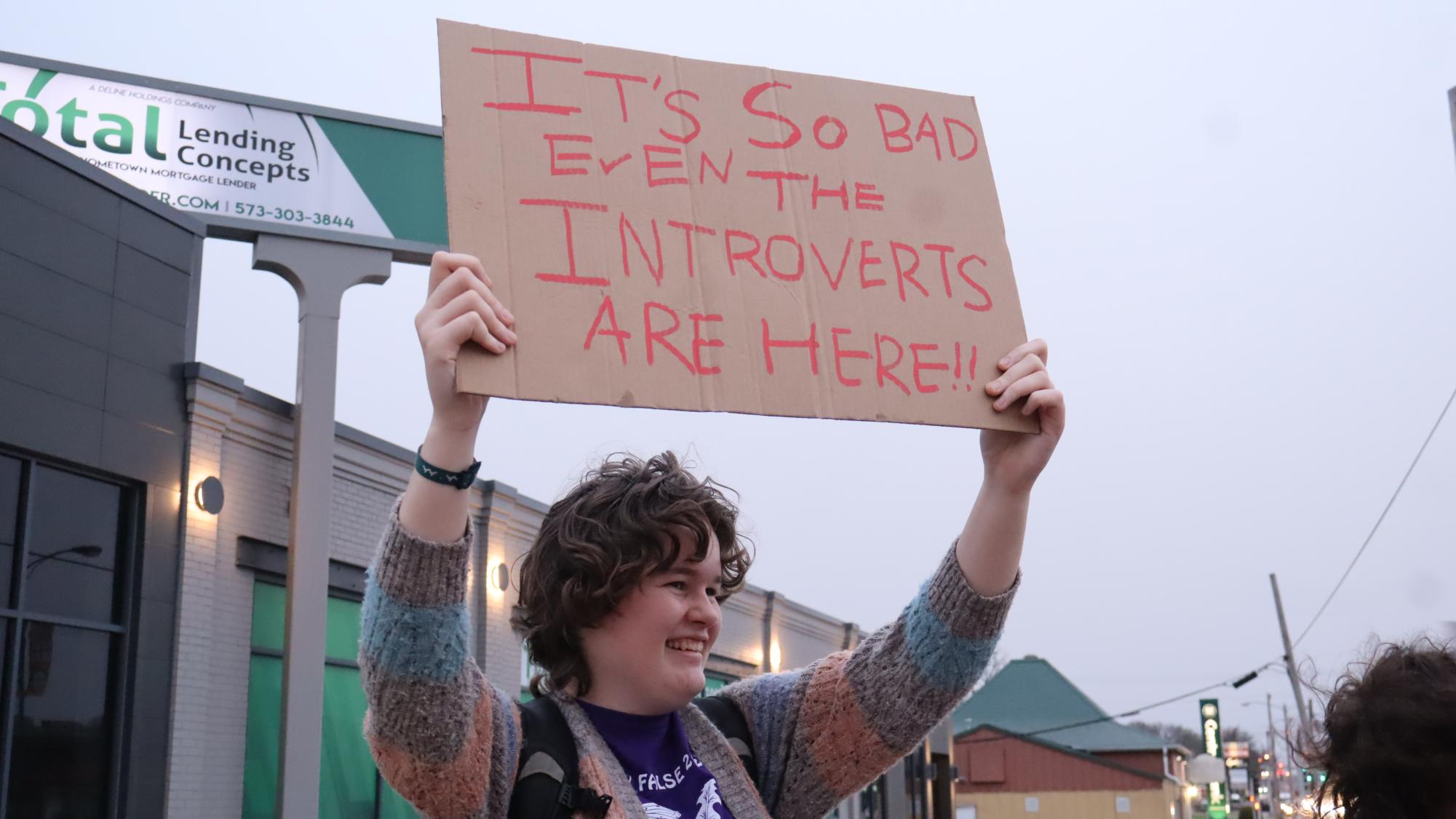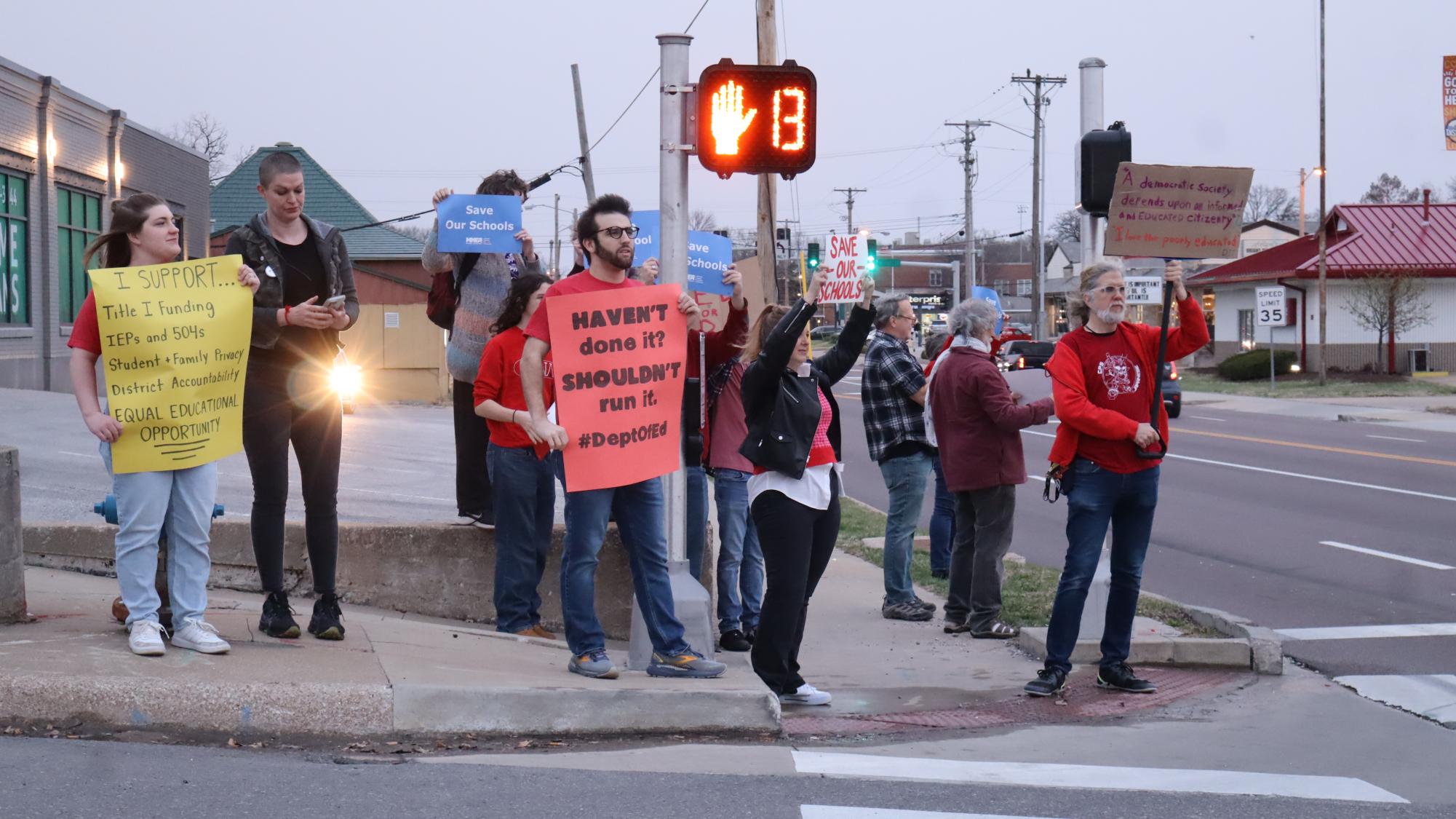On March 19, Public educators, students, and residents alike rallied on the corner of Providence and Broadway with the National Educators’ Association to voice their support for public education. The protest lasted from 7 a.m. to 8 a.m.

Columbia was just one out of the several rallies that occurred nationwide.
The protest made a large impact, even making an appearance on local and national television.
Groups from all over Columbia made an appearance including the National Association for the Advancement of Colored People (NAACP), a civil rights organization that has been active for over a hundred years.
President of Colombia’s National Educators Association (NEA), Noelle Gilzow, started the campaign after discovering 50% of educators in the Department of Education have lost their jobs.
Gilzow also noted that protests like these were a strong and effective way of showing the nation how much civilians valued education and got the message out to legislative levels of state and national government, which would implement change.
Cuts in the Department of Education would not just impact elementary through high school students, but also post-secondary educators and students. According to Gilzow, FAFSA and many colleges and universities receive funding from the Department of Education.
Many teachers who were present at the protest had much to say about the recent presidential changes and how that has affected the Department of Education.
Sean Beatty, Japanese teacher at Hickman High School, added on, listing the effects of the dismantlement of the Department of Education:
“[We will] see Pell Grants go away. Breakfast and lunch for kids, a lot of things that families rely on are going to be gone,” Beatty said.
Similarly, English teacher MacKenzie Everett-Kennedy shared her personal experience with the cuts of the Department of Education.

“A lot of people in the Civil Liberties Department were fired and lawyers in that department.They are the ones who ensure that students’ rights are protected if [students] have an IEP or 504.we’re talking students with learning disabilities or medical conditions,” Everett-Kennedy said.
IEPs and 504s, are both overseen by the department of education, ensuring that students with disabilities gain equal access to educational opportunities.
“I have a child that has one of those. And if her accommodations and rights are not being followed, it’s investigated by the Department of Education, and if those people are no longer there, that’s a problem,” Everett-Kennedy continued.
According to Statistica, over 90% of families across the United States rely on public education for proper education, transition into the adult world, and a reliable source of supervision while parents are busy during the day.
“The key of public education is that we don’t pick and choose our students. We welcome everybody. We educate everybody, regardless of where you’re from, your background, your income, your education, your abilities. We take them all.” Everett-Kennedy said.
Monica Miller, an elementary teacher at Paxton Keeley, added on, giving direct insight from working as a teacher for over a decade.
“We’re looking at a reduction of Special Education Departments, which means that IEPs, developed to help guide us teachers in the classroom, as well as our Special Ed Department to know what needs, what academic needs, are necessary for [students’]academic growth and success [are being cut],” Miller said.
Miller noted that the role of the Department of Education was to work as a bank of information for students nationwide. The Department of Education controls the funding, and without the professionals within the bureaucracy to maintain and vouch for the needed funds for public education, educators and students alike will be at risk of a lack of proper funding.
The cuts in the Department of Education drew in concerned civilians as well. Nick Foster, Columbia resident, father and Ward Four Council Member.
“I’m concerned mostly about those who are most at most at risk with the programs that the Department of Education provides, that are marginalized and are minority groups that get support from the department,” Foster said.
However, despite the efforts of the people to persevere with this funding, the Department of Education has been put under an executive order by President Donald Trump to be dismantled. Trump assures that the department’s resources will be intact and dispersed through different departments.
Even with the assurances made by the new presidential changes, some citizens remain wary and cautious.
“I’m just kind of concerned about the overall tenor of our conversation nationally about education. We need to be supportive of education in every way we can. And I think what’s being done at the federal level is destructive in a way that is going to be harmful to people,” Foster said.
“Why do we need to protest? Because people aren’t listening. People on high are not listening to the constituents, and if we don’t do something, it’s going to be a worse mess,” Beatty said.






